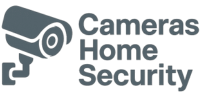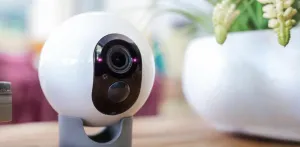Navigating the Murky Waters of Hidden Security Cameras
Ever walked into a room and felt like you were being watched? Well, you might not be wrong. Hidden security cameras have become a staple in both home security and corporate surveillance, but the line between security and invasion of privacy can sometimes get blurry. Let's dive into what makes these little watchers tick, where they stand legally, and some personal stories that might just make you scan the room next time you're feeling watched.
The Basics: What Are Hidden Security Cameras?
Hidden security cameras, often referred to as spy cameras or covert cameras, are typically small cameras designed to blend into their surroundings unnoticed. From smoke detectors doubling as cameras to the classic teddy bear with eyes that see more than just the nursery, these devices can be nearly undetectable.
And while they sound like something out of a spy movie, their uses are very down to earth. They're typically deployed either at home to monitor babysitters, caregivers, or potential intruders, or in business settings to keep an eye on employee productivity or prevent theft. But here’s where it gets interesting: just because you can install a hidden camera, doesn’t always mean you should.
If you're looking at alternatives or upgrades, some prefer professional monitoring systems for more transparency and legal structure.
The Legal Labyrinth of Covert Surveillance
Legally speaking, the use of hidden cameras comes with a hefty load of responsibility and varies wildly from one country to another, and even among states or regions within those countries. Generally, the rule of thumb revolves around 'expectation of privacy.' This simply means that installing cameras in places where individuals expect a degree of privacy, like bathrooms, changing rooms, or hotel rooms, is a big no-no and could land you in serious hot water. (reconeyez.com)
For instance, in most parts of the United States, it's perfectly legal to install hidden cameras in your own home without needing to notify anyone, provided they're placed in common areas where privacy isn't typically expected. However, audio recording is another beast. Some states have two-party consent laws, which means you’d better be careful about recording chats or ensuring everyone in the conversation knows they’re being recorded.
If you're unsure about compliance or system setup, make sure to explore home security camera privacy concerns before installing any surveillance device.
A personal quirk or paranoia?
I remember how a friend of mine once hosted a dinner party after installing a new hidden camera in her living room — aimed at deterring burglars. Midway through dessert, the conversation veered into privacy rights, and she casually mentioned the camera. Some guests laughed it off, but one was visibly upset, feeling betrayed by the lack of upfront transparency. It was a wakeup call on the implications of where and how we monitor.
Best Practices for Using Hidden Cameras
Despite their potential legal and ethical pitfalls, if used correctly, hidden cameras can be an invaluable tool for security. Here are some best practices:
- Check Local Laws: Always make sure you understand and comply with local laws regarding surveillance, especially if you’re capturing audio.
- Keep Out of Private Spaces: Avoid placing cameras in places where people expect total privacy. It's both illegal and a breach of trust.
- Disclose When Necessary: If you’re using cameras in a workplace or other public setting, it’s often required by law to inform people they may be recorded.
- Secure Recorded Data: If your cameras capture sensitive information, make sure it’s stored securely and only accessible to authorized persons. (safewise.com)
And if you’re setting up more than one device, knowing how to integrate cameras with your smart home ecosystem can streamline your monitoring while keeping data protected.
Technological Aid or Big Brother?
While the benefits of hidden cameras in combating crime and ensuring safety are indisputable, they spark a significant debate about privacy and ethical surveillance. The haunting feeling of being watched can deteriorate trust in any environment — be it at home or work. (spottersecurity.com)
A couple I know learned this the hard way. They installed a nanny cam disguised as a clock in their home to monitor their new babysitter. While it did confirm the babysitter's professionalism and dedication, it also led to uncomfortable questions when eventually revealed during her contract renewal discussion. The discussion led to trust issues, and the babysitter handed in her resignation, feeling her privacy had been invaded.
Bringing It All Home: Are Hidden Cameras Worth It?
As much as I understand the security and peace of mind hidden cameras can offer, they must be used thoughtfully. Whether it's protecting assets or monitoring a new babysitter, the decision to use such devices should not be taken lightly. Implementing them responsibly and ethically not only helps in avoiding legal repercussions but also maintains a foundation of trust among all parties involved.
So before you set up that hidden camera in your home or office, take a moment to think about the implications. Are you prepared to handle the responsibility that comes with such power?
Final Thoughts and Call to Action
Security doesn't always have to come at the expense of privacy. If you're considering using hidden cameras, or if you're simply in a position where being watched could be a possibility, stay informed and stay ethical. Perhaps it's also a good moment to strengthen physical security measures or improve interpersonal relations and trust — sometimes, these old-school methods can be surprisingly effective in alleviating fears and boosting safety.
And remember, the golden rule helps in almost every situation: treat others' privacy as you would want yours to be treated. Happy (and responsible) watching!





